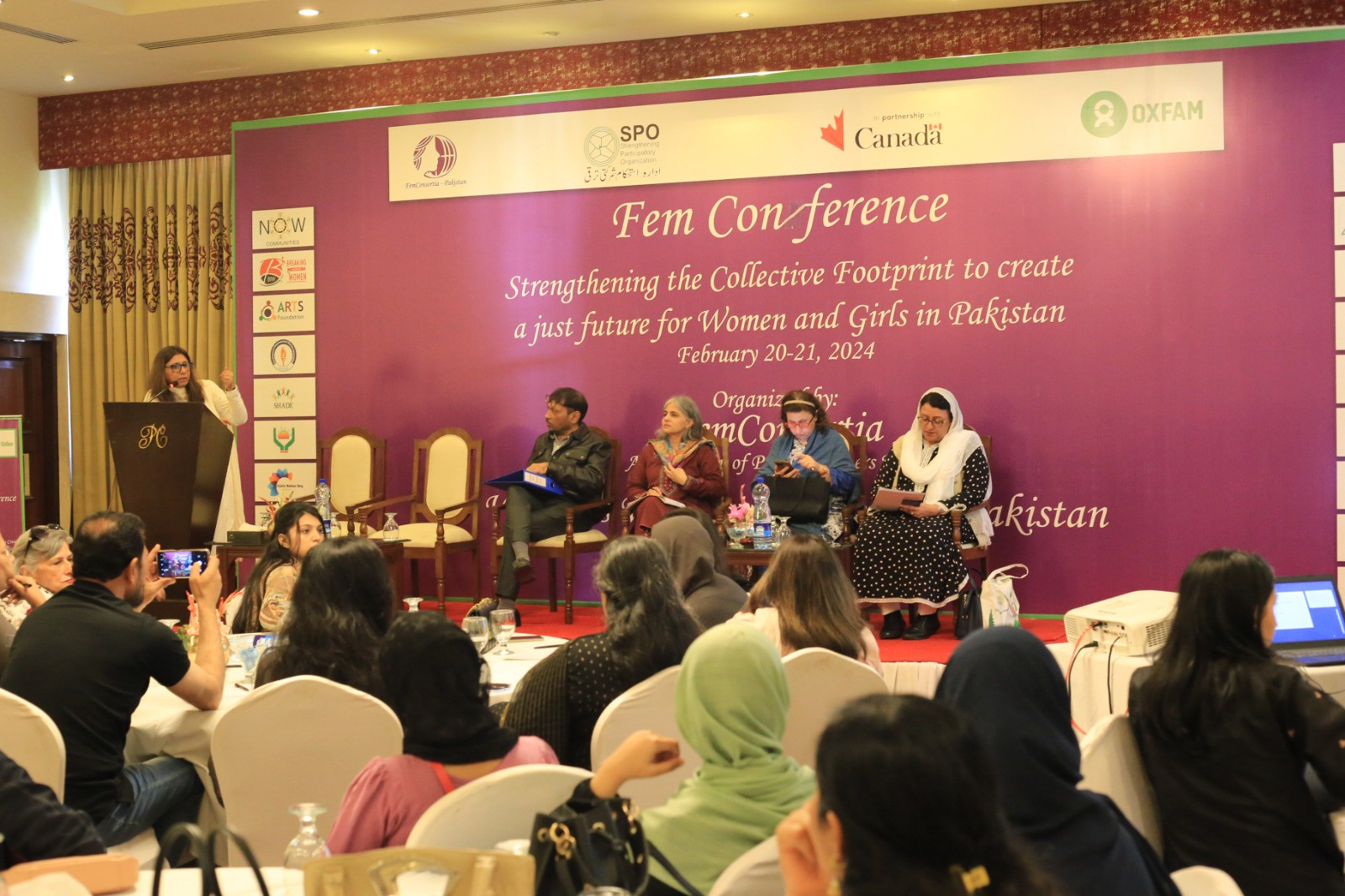
Despite numerous challenges, women persist in playing a crucial role in supporting and nurturing their families, with a particular emphasis on their resilience in the face of the impacts of climate change.
The invaluable contributions of women in Pakistani society were brought to the forefront during the two-day annual conference of Fem Consortia, a coalition of 12 women's rights organisations and five alliances across Pakistan.
Uzma Latif, presenting her groundbreaking research paper, illuminated the disproportionate effects of climate change on women, especially in Sindh. Latif revealed staggering statistics, indicating that 77% of women and 34% of men in Sindh, along with 70% of women and 30% of men in Punjab, are adversely affected by climate change. She emphasised that women bear the brunt of climate-related challenges, attributing this to increased caregiving responsibilities exacerbated by the unpredictability and insecurity brought about by climate-induced dislocation.
1708590493-0/WhatsApp-Image-2024-02-22-at-1-24-45-PM-(1)1708590493-0.jpeg)
Focusing on Thatta and Mirpurkhas districts in Sindh, Latif underscored how climate change has magnified women's caregiving roles within households, leading to detrimental effects on their mental health. She highlighted that the aftermath of events like the 2022 floods and the ongoing COVID-19 pandemic has led to food shortages, disproportionately affecting women, with Sindh recording the highest proportion of underweight women, both pregnant and non-pregnant.
Javeria Afzal, the climate change advisor of Helpage International, called upon political parties to prioritise discussions on climate change and its specific impacts on women, particularly those residing in rural areas.
Read Fight against climate change — a lost cause without women
Meher Nosherwani from the Trust for Conservation of Coastal Resources highlighted that women, primarily responsible for managing food, fuel, and water within households, are more severely affected by climate change compared to men.
In a session focused on 'Working Women,' Rubina Jamil addressed the barriers faced by women in accessing economic opportunities, citing the lack of representation in decision-making processes and unequal wages. Jamil also highlighted the plight of women working in the agriculture sector, who often receive produce instead of fair wages.
Nuzhat Shirin magnified the shortcomings in existing legislation, particularly concerning home-based workers, urging for stronger legal protections. Despite these challenges, speakers acknowledged the resilience of women who continue to contribute positively to the country's development.
Renowned playwright B Gul emphasised the importance of addressing women's issues in mainstream media and pledged to bridge the existing gap through her work.
The conference served as a platform to amplify the voices of women across Pakistan, shedding light on their invaluable contributions and advocating for meaningful change in policies and societal attitudes.
In her concluding remarks, Mahtab Akbar Rashdi, former TV presenter, and renowned politician remarked that while we are still talking about women's issues 76 years after the birth of Pakistan, if women and their supporting men, such as those gathered here at the conference, took charge, what kind of Pakistan would we have had. She also expressed full faith in the younger generation's ability to turn things around.

1725877703-0/Tribune-Pic-(5)1725877703-0-165x106.webp)



1726722687-0/Express-Tribune-Web-(9)1726722687-0-270x192.webp)













COMMENTS
Comments are moderated and generally will be posted if they are on-topic and not abusive.
For more information, please see our Comments FAQ